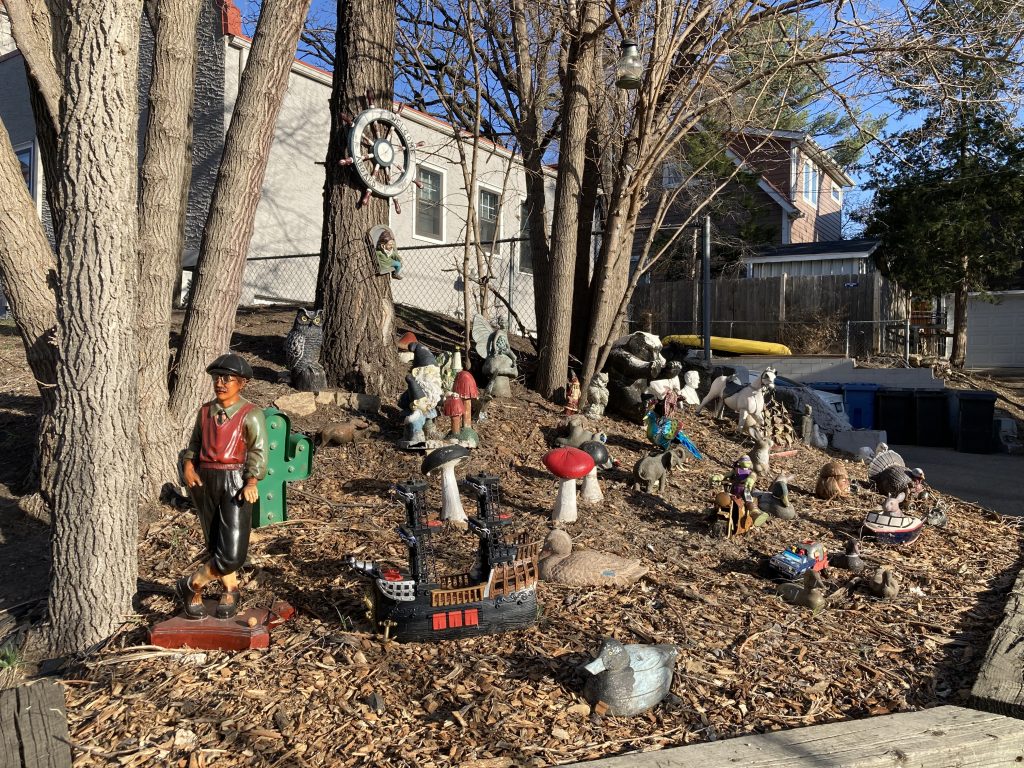2.5 miles
down franklin hill and back
32 degrees
Cold, but it felt like spring with the sun and the birds and the buds on the trees almost open. Ran with Scott. Started near Lake Street to the franklin hill to check out the flooding in the flats. The river is high and moving fast, but not much worse than it was earlier in the week. Scott took a video with my phone:
We ran back up the hill — the entire 1/2 mile back to the very top, then kept on going until we reached the trestle and 2.5 miles. A nice run.
The thing I remember most about looking down at the river from high up on the gorge was the fast moving foam. And the thing I remember most about running beside it was the way the water (almost) roared as it gathered itself under the I-95 bridge.
overheard
one walker to another at the top of the franklin hill: That’s the problem with late capitalism, it doesn’t encourage community.
I love our neighborhood where people walk around critiquing capitalism. As we ran down the hill, I asked Scott: Is that just a problem with late capitalism? Then I mentioned how it seems that community is often defined too narrowly and only as a response to the limits of capitalism. And, right before reaching the flooding, we discussed Go Fund Me.
Author Bio
Inspired by a bio request I encountered on the submissions page of a journal — don’t tell us how many degrees you have or where you’ve been published; in 3 sentences tell us about the real you and what spurs you on — I decided to have some fun. Here are a few I came up with:
Since the start of the pandemic, Sara Lynne Puotinen has been keeping a series of commonplace books that she has named the Plague Notebooks. The 15 of them she has completed so far are not about the pandemic, but include interesting words she’s encountered or ideas for poems. Occasionally she uses them to practice drawing the perfect block-numbered 6, which is surprisingly harder than she imagined.
When Sara Lynne Puotinen wakes up, she usually has one of three songs stuck in her head: the theme from the TV show Alice, the sunrise service hymn “Let There Be Peace on Earth,” or “Oh What a Beautiful Morning” from Oklahoma.
Even though she’s way too old to think this and knows it’s impossible, Sara Lynne Puotinen still glances down at the bottom of the pool when she’s swimming laps to make sure Jaws isn’t popping out of one of the drains. Swimming in the lake, she can’t see what’s below her, but she wonders if Jaws might be down there too.
Sara Lynne Puotinen wants to know which one of her parents decided her first name didn’t need an h but her middle name did need an e. She’d like to thank them. Also, she just learned that Lynne means lake in Welsh and wonders if said parent knew this too.
Here are three things that Sara Lynne Puotinen has decided will make for a good day: a wild turkey running through a field, its head bobbling awkwardly; the ski poles of a roller skier clicking rhythmically on the asphalt; the very rare rumbling of a train crossing over the trestle above the mississippi river gorge.
After reading the line, the tree outside my window, in too many poems, Sara Lynne Puotinen can’t help but notice the tree outside her window. She thinks, but is not sure, that it is a pussy willow tree. When she looks out at it, she thinks of her mother-in-law who died last year because she loved pussy willows.
Sara Lynne Puotinen has decided she likes the wisdom that comes with getting older but not the aches or pain or fear. Or all the people dying from cancer.
Sara Lynne Puotinen enjoys composing poems while running up hills. She also enjoys composing them while running down hills. In other words, she likes making things that are hard even more difficult, and things that are easy less so.
Love this poem I found the other day on Have Has Had:
WITH ALL DUE RESPECT TO KRIS KRISTOFFERSON, JESUS WAS A LEO/ Paula Turcotte
The facts of this case are murky at best so let the record show
the Church was riding the coattails of Saturnalia and
December 25 proxied for the solstice well enough. The water
into wine thing: grandstanding if I ever saw it. Show me
a Capricorn and I’ll show you the guy rowing the boat,
not the spectacle walking on water. I’d also like
to submit into evidence the carpenter to superstar glow
up. It’s textbook Leo—just ask his siblings. Oh,
you haven’t heard of them? Your honor, the state rests.
